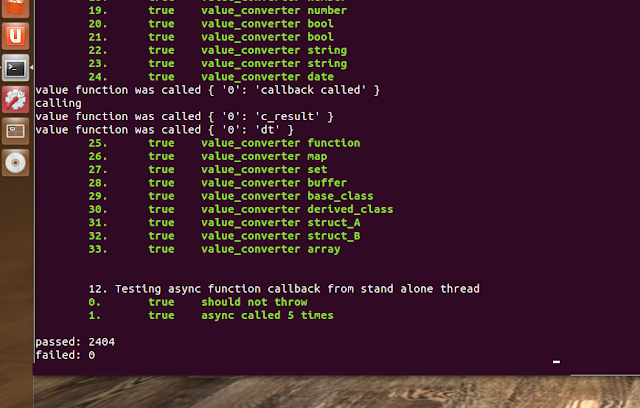Lessons learned:
- gcc is a lot less forgiving than visual c++, cryptic error messages when there are circular references between header files.
- gcc 6 is missing some minor c++17 implementations (std::size for example).- c++ 11 (and up) - windows header includes some headers by default, in gcc you have to include them explicitly, like cmath.
- node-gyp adds c++11 compilation flag which kills gcc's ability to compile c++ 14. it can be removed but why was it even there...?
edit 2017-02-26:
- gcc multi-line comment warning makes sense when you realize the backslash at the end ( \ ) might be used to comment the line following the comment.
- gcc doesn't like extra (and useless) typename keyword
- gcc doesn't like you not using typename where it should be clear its a type definition.
- gcc doesn't like to mix definitions from headers and code files.
and many more...
I guess gcc makes you write better code :-)










